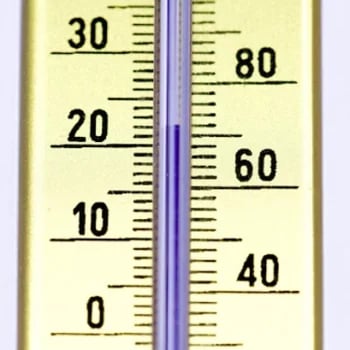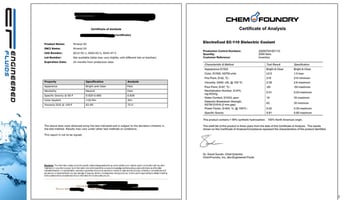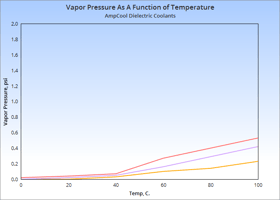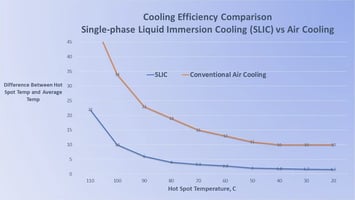“Let’s go to the electronics store and we’ll use whatever memory they have on sale today” said no...
Insulation Temperature Classes
The electrical insulation systems used in electric motors, generators, and transformers is divided into different classes by the application temperature. This is referred to as the “Insulation Class” of the insulation system. The different classes are defined by industry standards groups, such as NEMA, Underwriters Laboratories and IEC. In Immersion Cooling applications (Single-phase Liquid Immersion Cooling, or SLIC Technology) it is important to match the correct Dielectric Cooling Fluid to the application’s thermal requirements.

That’s why Engineered Fluids offers several different Dielectric Coolant products within each of our Product Lines. Each of these products has a different molecular weight, which, in turn, affect the volatility, pour point, viscosity and flash/fire point. Our AmpCool AC-100 Series, for example, is used to cool battery systems, motors and other applications within Electric Vehicles.
You can see that the AmpCool product line goes from lower molecular weight, low viscosity products such as AmpCool AC-110 to higher molecular weight AC-140, which offers an enhanced safety margin against fire and explosion.

All AmpCool products are nontoxic and biodegradable. Several have been given the “Food Grade” designation in the US; an indication of their safety and ease of handling and use.
Whatever the temperature of your application, there’s an AmpCool Dielectric Coolant that’s right for you. Call Engineered Fluids’ Technical Support line (725-218-1981) or send us an email at “support@engineeredfluids.com” and we’ll be glad to help you choose the best dielectric coolant for your project.



